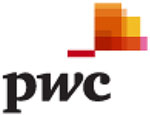VAT change eliminates carousel fraud threat from carbon markets

VAT payments on all emissions products eligible within the EU Emissions Trading System (European Union Allowances (EUAs), Certified Emissions Reductions (CERs) and Emissions Reduction Units (ERUs)) will be accounted for under the reverse charge mechanism, so that the customer, rather than the supplier of the credits informs HMRC of the trade and accounts for the VAT due.
The EU issued a directive in March 2010 to enable the reverse charge mechanism to be applied. The new regulation replaces an interim measure of zero rating VAT on carbon allowances introduced by HMRC in July 2009.
In 2009, carousel fraud emerged across many of the major EU carbon trading nations. Trades were made through unregulated brokers, selling the allowances on a carbon spot trading exchange often through buffer companies. Fraudulent traders charged VAT on transactions to the buyer, but did not pass on the VAT to the tax authorities.
Cost measured in billions
Carousel fraud, traditionally associated with fast moving consumer goods such as mobile phones or computers, was estimated by EuroPol to have cost approximately €5 billion (about R45 billion) for several national tax systems. At the height of the fraud, they estimated up to 90% of the whole market volume was caused by fraudulent activities.
Jonathan Main, tax partner at PwC said: "Legitimate traders and businesses are the ones that get caught in the cross fire in carousel frauds like this, so they will welcome this change. It's essentially an anti-fraud measure, eliminating the threat of carousel fraud from the market. Whether this has a real impact on the volumes traded, we'll have to wait and see, but it will make life a lot simpler for those serious traders and market players involved."
The EU Emissions Trading System, worth £74 billion (about R814 billion) last year, is the world's largest carbon market, in which London's financial markets play a dominant role.
Richard Gledhill, partner, PwC Carbon Markets, said: "This fraud has played into the hands of the anti-markets lobby in climate change, helping to undermine confidence in carbon markets. Whilst the outlook for carbon is still overshadowed by the bigger issue of international policy uncertainty, this is an important change, providing a clear signal to policy makers that the EU scheme can and will be run effectively and efficiently."
Notes:
1. Compliance market credits are recognised under statutory 'cap and trade' regimes. Polluting businesses which are subject to these regimes must hold, or obtain on the open market, and then 'retire' sufficient emissions credits to cover their emissions. If they do not, then they will suffer financial penalties. The credits are consumed to enable businesses to engage in economic activity without penalty, and to meet their Kyoto commitments. The credits are widely traded on national and international markets.
2. In response to the escalating threat of VAT fraud in connection with trading of emissions allowances (often called 'carbon credits'), the Government introduced legislation to zero rate the supply of emissions allowances within the UK with effect from 31 July 2009. It followed similar action taken by France and the Netherlands earlier in the summer. In July 2010, HMRC
3. In April 2010 the HMRC said they had arrested 21 people after searching 81 businesses and residential premises, a part of an investigation of tax evasion related to carbon credits.


